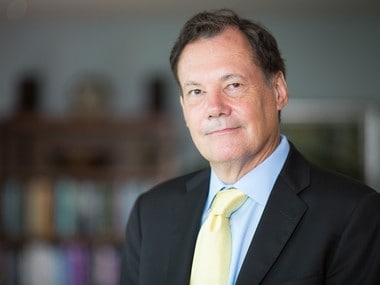Geoffrey Jones, Isidor Straus Professor of Business History and Faculty Chair of Harvard Business School’s Business History Initiative, was in Mumbai recently. As part of Godrej Archives’ annual lecture series, Jones spoke on What Business History Tells Us about the Future of Globalisation. Launched in 2006, the Godrej Archives Lecture Series aims at popularizing business history and encouraging the development of business archive. In a conversation with Firstpost, Jones spoke about the ‘great deal of uncertainty’ in business, how moments of transition and turbulence inevitably reinforce the relevance of business history, how history can provide some sort of certainty and importance of looking back at business history in order to interpret the present. Here are the five lessons distilled from the conversation: 1) There is nothing linear about globalization: We think it is, we can think it is a linear process. However, there is no evidence it has been, maybe will be, maybe never will be. I doubt it. Globalization is a secular process and it’s a secular process for particular reasons. [caption id=“attachment_3933317” align=“alignleft” width=“380”]
 Geoffrey Jones, Isidor Straus Professor of Business History, and Faculty Chair of the Harvard Business School’s History Initiative
[/caption] 2) _Globalization almost by definition rewards winner_s. If it rewards winners, there are going to be losers. The losers know they are losing and that’s a huge issue. The problem, the key thing is the sentiments, how people feel about globalization. So in the inter-war years and through the 50s and 60s there was a massive sentiment change. People basically believed globalization was bad and alternatives were better. 3) De-globalization occurs when sentiments shift: It is when people start saying we are going to build walls or we are going to stop restrictions, or we are going to renegotiate trade negotiations. So, when the sentiment changes we know that there is a paradigm shift and you know that much more than any other, any more things. 4) De-globalization is good or bad depends on what lens you are looking at: De-globalization in the 20th century brought many benefits to many people. It is also unfortunately extremely dangerous because the same sentiments which close down a system are likely to cause political turmoil. 5) Business leaders must take up greater responsibility: There is my own institution and Dean Dornum from the 1920s. That’s Harvard Business School being built in 1927 by the way. By the 1920s Dornum was extremely concerned about inequality in the United States, about the responsibility of business. He said business has grown very big and has to recognise its responsibilities for the future of civilisation. What was motivating him was the huge concern that if business didn’t do that, governments will intervene and do it for them and that’s because too many people resent business. There is a guy called Shivsola Ichee who is one of the most important Japanese business leaders in the late 19th century. He is an amazing venture capitalist. He founded 600 companies. He also very articulately makes the case, which we now call stakeholder capitalism. He says very clearly in a case called Shapansuki, if you know Japanese, that business has a responsibility for society, for stakeholders. He is not talking about corporate social responsibility. He is talking about how every single thing a business person does should be contributing to society. Nobody listens to Dean Dornum or Shivsola Ichee and the world does in fact de-globalise. We see a sentiment shift whereby people believe that the state is the instrument to create social justice. And everywhere across systems from India to United States, the states in various ways take over the issues of education, distribution, everything else. We see massive restrictions on capital flows, people flows and trade flows. That’s what drives all those collapse in trade and of capital movement. Governments shut them out. They say, no way guys, you are not going to do it, you are not going to invest. Thus policy drives de-globalisation. So, it is the responsibility of business leaders to bear Dornum’s words in mind and think about ways where we can create more winners than losers.
Business has grown very big and it has to recognise its responsibilities for the future of civilisation
Advertisement
End of Article


)




